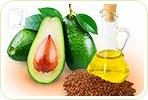Estrogen replacements are widely considered the first stop for dealing with menopausal signs and symptoms. However, natural remedies may be a better solution for your menopausal symptoms. Lifestyle and food changes, with herbal supplements are often much easier and more effective than using hormone therapy. Keep reading to find out five of the best natural menopause remedies.
Lower Stress

Breathing and relaxation are imperative to good menopausal health. Slow and deep breaths help to relieve stress by naturally relaxing the body. Alongside this, some “me” time like reading a book or similar can help. Similarly, meditation or yoga can drastically reduce your stress levels, which will eventually reduce the severity and frequency of menopause symptoms, such as hot flashes.
Exercise
This should be a part of everyone's daily routine and is an important aspect of symptom management. At least half an hour of exercise on a daily basis will positively impact your health during menopause, which can reduce symptoms.

It's important to remember that no matter what your limitations are, exercise is possible. You don't need to go sprinting, just walking round the block can be enough, and different exercises can help different symptoms. Strength training, for example, raises testosterone and swimming is great exercise for those suffering from joint pain and osteoporosis.
Discover Herbs
There are many natural supplements on the market for you to check out and use to help during menopause. Some of the main ones are:
- Black cohosh
- Red clover
- St. John's wort
- Dong quai
- Gingko biloba
These herbal remedies rebalance hormone levels and alleviate many menopause symptoms, such as: hot flashes (black cohosh), depression (St. John's wort), and many others.
Check Your Diet
Would you believe that your diet can be the worst trigger for menopausal symptoms? However, your dietary choices can reduce symptoms.
Five foods to avoid are:

- Baked goods
- Caffeinated drinks
- Salt
- Alcohol
- Spicy foods
Five foods to eat are:
- Soy
- Avocado
- Fish
- Milk
- Beans
Vitamin Intake
At every stage of life, getting enough vitamins is important. During menopause, however, increasing your intake of certain vitamins is crucial, such as: vitamins E, C, B-6 and B-3. These all help to promote a healthy nervous system, reduce hot flashes, and generally balance hormones.
Click on to the following link to learn more about the different ways to handle menopause efficiently.
Sources
- BMJ Group. "Menopause: What is it?" Patient Leaflet. 2007.
- Hopkins, Virginia. Lee, John R. M.D. What Your Doctor May Not Tell You About Menopause. New York: Warner Books Inc., 1996.
- Love, Susan M.D. Menopause and Hormone Book. New York: Three Rivers Press, 2003.
- Martin, Raquel. The Estrogen Alternative. Rochester, VT: Healing Arts Press, 2000.



